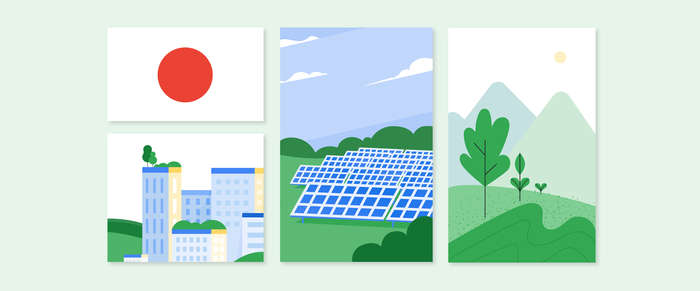Google Public Sector and Battelle NEON expand data access to advance ecological research
Justin Keeble
Managing Director for Global Sustainability
Try Google Cloud
Start building on Google Cloud with $300 in free credits and 20+ always free products.
Free trialIn its mission to enable the exploration and understanding of the ways in which land, life, water and climate interact, the National Ecological Observatory Network (NEON), one of the largest ecological observation facilities and sensor networks in the world, is working with Google Public Sector to leverage the speed and power of Google Cloud’s artificial intelligence (AI) and machine learning (ML) capabilities for climate data.
NEON is a continental-scale observatory that collects ecological data to better understand our changing ecosystem. Operated by applied science and technology development company Battelle since 2016, NEON was designed and fully funded by the U.S. National Science Foundation (NSF) to provide free and open large-scale temporal and spatial datasets to researchers for scientific advancement over the next 30 years. NEON aims to make the data in their network uniform, searchable, easy to use, reproducible, and citable to advance understanding of the impacts of climate and land use change on U.S. ecosystems. This approach also advances Battelle’s mission of promoting applied science and technology for the betterment of society.
So far, these datasets include 182 data products and over 300,000 samples and specimens from NEON’s 81 field sites across the country. Each site has unique characteristics, from deserts to tropical forests, from small streams to lakes. Using NEON’s online resources, researchers have access to a diverse suite of ecological conditions from across the United States anytime. NEON datasets are used extensively, including in research areas focused on climate resilience.
But datasets at this scale are still relatively new and require unique skills to access and utilize them. Researchers often deploy a variety of tools, work in a range of formats, have expertise in different fields and are located at various institutions. This makes collaboration difficult. In addition, visualization and exploration of the data often requires coding skills. To address these challenges and to further its mission, Battelle NEON collaborated with Google Public Sector to deploy their data on Google Cloud Storage and Compute Engine. The goal of the collaboration is to provide flexible and secure infrastructure to efficiently store and deliver data to NEON’s users and, ultimately, enable users who couldn’t access data on this scale before or design new models without programming skills, to advance their research with cutting-edge tools. For this ultimate goal, NEON and Google Cloud are actively collaborating to explore options for leveraging tools such as BigQuery and Google Earth Engine.
“This has really been a symbiotic mission between companies,” says Dr. Paula Mabee, Chief Scientist and Observatory Director at NEON. “We’ve been working together to enable and empower the next generation of ecological scientists to solve the most complex and pressing problems our society faces today.”
Some of these breakthroughs are already underway as part of NEON’s partnership with the American Geophysical Union’s Thriving Earth Exchange. After Hurricane Maria devastated Puerto Rico in 2017, residents recently partnered with NEON and local nonprofit TechnoServe to adopt NEON protocols for sampling groundwater to measure nitrate levels, checking if their local well water was safe for consumption. As this project continues, residents will compare their measurements to NEON data collected upstream to better understand and mitigate contamination.
Another team of researchers is working with Alaska’s Berry Future Project to utilize NEON phenology (the study of periodic biological events) data and protocols to monitor changes in berry yield across sites in the state. This community-science partnership will help communities plan for and mitigate the future effects of climate change on berry availability, thus addressing issues of food security and community resilience.
Other researchers are using machine learning techniques to efficiently identify the invertebrates included in NEON-collected samples, each containing tens to hundreds of individuals from a diversity of species, or to understand the impacts of forest fires on ecosystems.
“The combination of the NEON datasets with the tools and computing power that Google brings will enable researchers to realize the promise of NEON to advance ecological forecasting at scale,” says Dr. Kate Thibault, NEON Science Lead.
Battelle is partnering with ten U.S. national labs for their Innovations in Climate Resilience conference (ICR23) in March 2023. Government, academia, and industry leaders are coming together to share innovation and foster the advancement of science and research that is urgently needed to address climate impact and resilience. To register for ICR23, click here.
In addition to providing NEON’s cloud infrastructure, Google Public Sector will be facilitating grants and training for scientists who want to accelerate their ecological research. To apply for a grant using NEON datasets on Google Cloud, click here. Please indicate “Battelle NEON” in your grant application.



